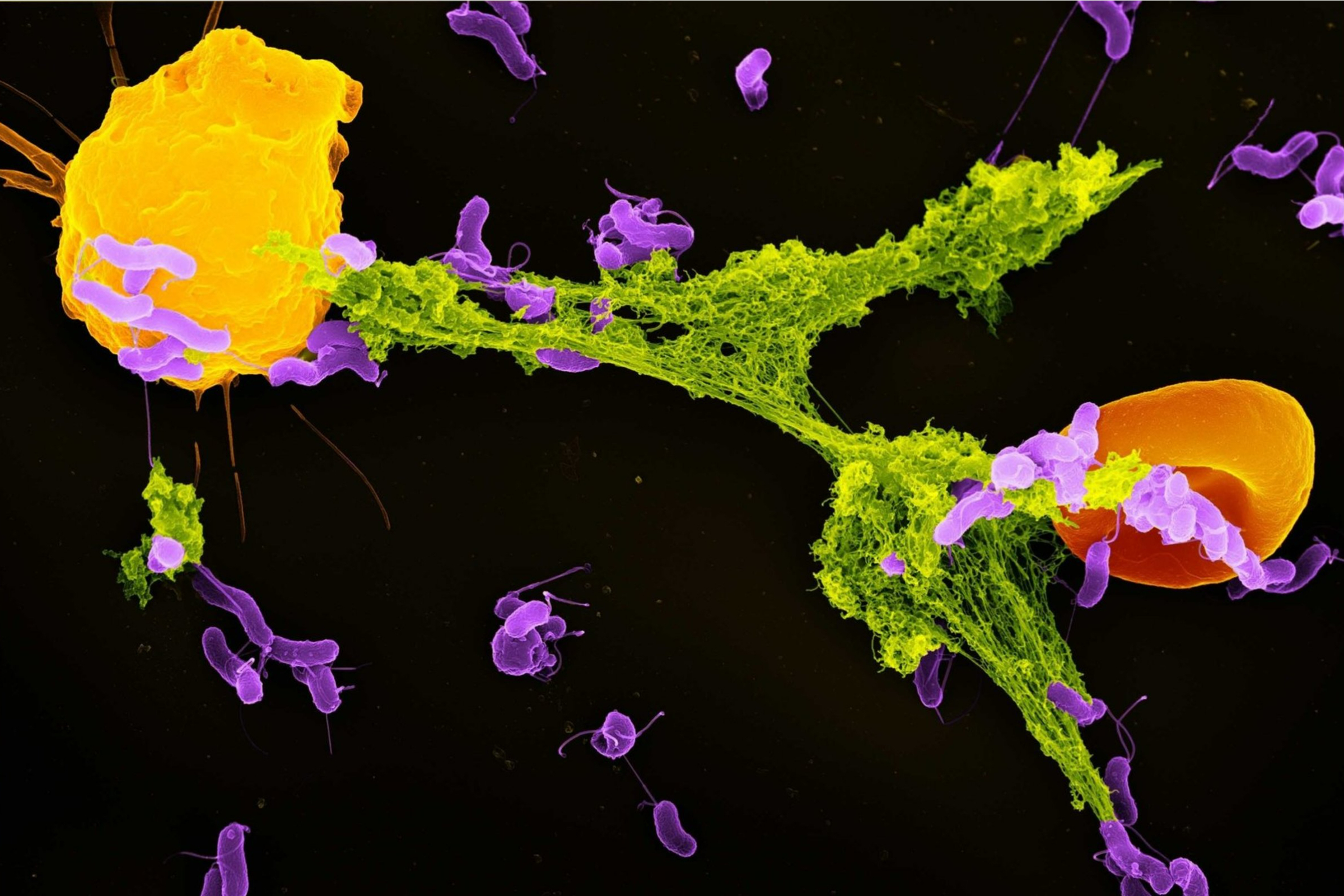Health
New Enzyme Breakthrough Offers Hope for Autoimmune Disease Treatment

Recent research from Neutrolis suggests that a newly discovered DNA-chopping enzyme may provide a novel therapeutic approach to combat autoimmune diseases. This enzyme has the potential to break down neutrophil extracellular traps (NETs), which are structures released by neutrophils—an essential component of the immune system.
Neutrophils play a crucial role in defending the body against infections. When these cells encounter pathogens, they eject their DNA to form web-like structures that ensnare and neutralize bacteria. While effective in fighting infections, the formation of NETs can also contribute to autoimmune diseases, where the immune system mistakenly attacks the body’s own tissues.
The preliminary findings indicate that by targeting and breaking down NETs, the enzyme could help alleviate the symptoms associated with various autoimmune conditions. According to the research data from Neutrolis, reducing the persistence of these traps may enhance overall patient outcomes.
Implications for Autoimmune Disease Treatment
The implications of this discovery could be significant for the medical community. Autoimmune diseases affect millions worldwide, with conditions like lupus, rheumatoid arthritis, and multiple sclerosis posing considerable challenges for treatment. Current therapies often focus on suppressing the immune response, which can leave patients vulnerable to infections.
This new approach, which centers on dismantling NETs, may provide a means to target the underlying mechanisms of autoimmune diseases while preserving the immune system’s ability to fight off infections. The enzyme’s potential has sparked interest in further clinical trials to explore its efficacy and safety in humans.
Neutrolis plans to initiate comprehensive clinical trials in the coming months, aiming to gather more robust data on the enzyme’s effects. Researchers are optimistic that these trials will pave the way for new treatment options that could transform the management of autoimmune diseases.
Next Steps in Research and Development
As the research progresses, the medical community is closely monitoring developments from Neutrolis. The enzyme’s unique capability to manipulate immune responses represents a shift in how autoimmune diseases might be treated in the future.
While early data is promising, further studies will be essential to validate these findings and determine the enzyme’s long-term effectiveness. The emphasis on patient safety and thorough testing remains paramount as research teams work to translate laboratory results into practical therapies.
In summary, the enzyme developed by Neutrolis presents a potentially groundbreaking advancement in the fight against autoimmune diseases. By focusing on the role of NETs, this research opens the door to innovative treatments that could significantly improve the quality of life for millions of individuals affected by these conditions.
-

 World2 weeks ago
World2 weeks agoGlobal Air Forces Ranked by Annual Defense Budgets in 2025
-

 World2 weeks ago
World2 weeks agoMass Production of F-35 Fighter Jet Drives Down Costs
-

 Top Stories2 weeks ago
Top Stories2 weeks agoNew ‘Star Trek: Voyager’ Game Demo Released, Players Test Limits
-

 Science2 weeks ago
Science2 weeks agoTime Crystals Revolutionize Quantum Computing Potential
-

 Top Stories2 weeks ago
Top Stories2 weeks agoDirecTV to Launch AI-Driven Ads with User Likenesses in 2026
-

 World2 weeks ago
World2 weeks agoElectrification Challenges Demand Advanced Multiphysics Modeling
-

 Lifestyle2 weeks ago
Lifestyle2 weeks agoLia Thomas Honored with ‘Voice of Inspiration’ Award at Dodgers Event
-

 Entertainment2 weeks ago
Entertainment2 weeks agoFreeport Art Gallery Transforms Waste into Creative Masterpieces
-

 Lifestyle2 weeks ago
Lifestyle2 weeks agoDiscover Reese Witherspoon’s Chic Dining Room Style for Under $25
-

 Health2 weeks ago
Health2 weeks agoGavin Newsom Critiques Trump’s Health and National Guard Plans
-

 Entertainment2 weeks ago
Entertainment2 weeks agoFast & Furious Coaster Hits the Track at Universal Studios
-

 Health2 weeks ago
Health2 weeks agoResearchers Uncover New Insights into Cancer Mortality Causes









